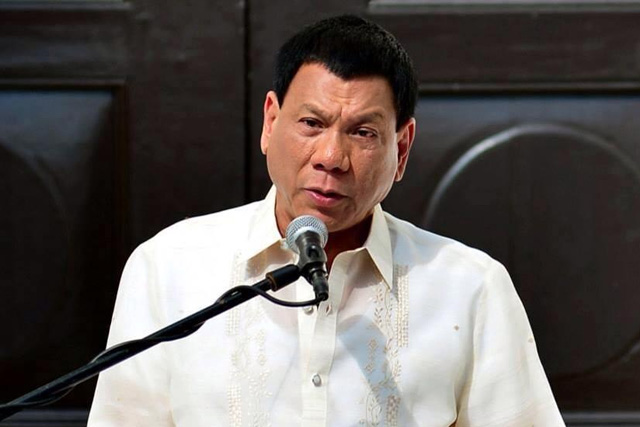Violence is gendered
MANILA, Philippines - The President of the Philippines has declared a total war against drugs. Duterte believes that a drug-free country is a symptom of the removal of our society’s ills, including poverty. His strategy to achieve such an end is through extrajudicial killings.
I wouldn’t mince words. The state has categorically sponsored extrajudicial killings to achieve its vision of a good society.
Violence is gendered (Lindemann, 2006). It is a norm for men. As depicted in countless action and superhero movies, and in comic strips, ideal men are violent. In reality and in various aspects of life, they are rewarded for being so.
Duterte has drawn inspiration from Benito Mussolini of Italy, Josef Stalin of the Soviet Union, Adolf Hitler of Germany, Mao Zedong of China, Pol Pot of Cambodia, Idi Amin of Uganda, and our very own Ferdinand Marcos, who used violence to achieve their personal, political, and military agenda.
He idolizes Russian President Vladimir Putin to the point of calling him his “hero” even if the latter uses lies and violence as political and survival strategy.
Duterte has banked on the people’s frustration towards oligarchs circling Malacañang for the past decades. He has capitalized on this caricature for he knows in the end he will be rewarded for being the violent, vigilante leader.
A patriarchal tool used to maintain its rule and authority, violence has a natural inclination for technologies of annihilation where “the power to take rather than give life is the ultimate power to establish and enforce domination” (Eisler, 1987).
Duterte’s vision of the good society is a maldeveloped one. It puts primacy on exploitation, inequality, injustice, and violence. This maldevelopment promotes destruction. For instance, the state uses its resources to kill its citizens rather than to treat them. This maldevelopment encourages wars among Filipinos not only in the virtual world but also, and more importantly, in the offline realm. This maldevelopment wastes money that could have been used to build a society where there is “food for the hungry, shelter for the homeless, schools for the unlettered, medicine for the sick, jobs for the unemployed, and social services to benefit women and children” (Pineda-Ofreneo, 2004).
Many households in the Philippines are male-headed, and while thousands have been victims of extrajudicial killings in the past months, this vigilante process also exploits and corrupts poor women, for they are victims as well. The spate of extrajudicial killings perpetrated by the state has burdened poor Filipino women further as they have to shoulder solely the responsibilities to ensure their children are fed, schooled and sheltered.
Opposite this violence, however, is nurturance. It’s a quality almost often linked to women. Women are supposed to be nurturing, and in a patriarchal society, those who are not are heavily ostracized if not punished. But nurturance can be gender-aware and should be upheld by both men and women. A nurturing society is the good society. It is a society where the focus is more on relationships than on hierarchies. It is a society where conflict can be productive rather than destructive. It is a society that values life more than death.
In this alternative world, normative ideals such as cooperation, compassion, and harmony with nature will be promoted and nurtured. Our movement from the current maldeveloped society of Duterte to this alternative world where our minds, hearts, and hands are unfettered will not be an easy endeavor.
No matter how difficult the struggle may be, it is necessary for our survival.
* * *
Christopher Porras is a graduate of BA Philosophy from the University of the Philippines and is currently taking up an MA in Women and Development in the same school. He is a member of Babaylanes Inc., an NGO that organizes LGBT student organizations in the country. He is a proud feminist and encourages young people to see and combat the interlocking and interdependent forces of capitalism, patriarchy, and other social markers that prison women, the LGBT, and other marginalized groups.
- Latest
- Trending

























